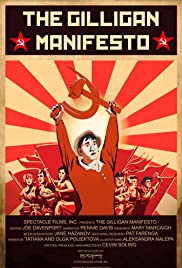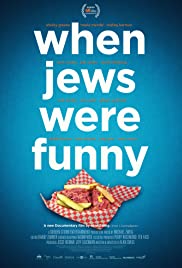
100 Years of Warner Bros. takes a historical look at the legacy of one of Americaandapos;s leading studios. The documentary explores the origin, evolution and endurance of Warner Bros. – from a family affair to a global juggernaut.
You May Also Like

Why the Spray is a collection of stories about the identities and expressions of five Miami graffiti artists. To understand “why” they “spray,” I infuse cinematography, archival footage, photography, and artistry to provide unique insight into the psychology of graffiti artists.

In his delirium from his return from war, Francesco Bernardone goes back in his memories to the days when he lived for parties and carnal pleasures. He slowly recovers, but after the illness he is no longer the Francesco that everybody knew. Instead of spending hours in taverns, he meditates on the beauty of God’s creatures, soon renouncing his riches and his family with plans to rebuild an abandoned church and his life.

Wiz’s Weekender (1992) was a film ahead of its time, both in form and content. It engaged with contemporary issues that mainstream media were eager to sensationalise. Consequently, it was branded with an 18 certificate and banned by both the BBC and ITV, never reaching a wider audience. For the past three decades, Weekender has bubbled just below the surface, gaining genuine cult status and influencing a vast network of creators. In the run-up to its thirtieth anniversary filmmakers Tabitha Denholm and Adam Dunlop interviewed people involved in the project. I Am Weekender is built around those conversations.

Presents Gordon Parks’ photo-essay “A Harlem Family”, framed by a filmed segment featuring Parks and the Fontanelle family and narrated by Parks.

Peabody Award winner Linda Moulton Howe and other experts explore the enigma of the colossal stone pyramids encircling our planet, both their purposes and the incomprehensible technology behind their creation.

At the height of the Cold War, Gilligan’s Island depicted seven Americans living in an analogue of a post-apocalyptic world where the survivors have to rebuild civilization. Remarkably, the society they create is pure communist. Interviews with the show’s creator and some of the surviving actors, as well from professors from Harvard, reveal that Gilligan’s Island was deliberately designed to be dismissed as low brow comedy in order to celebrate Marxism and lampoon Western democratic constructs.

In October of 2016 the battle for Mosul, the Islamic State’s self-proclaimed capital in northern Iraq, began. With unprecedented access, Bernard-Henri Lévy and his team follow the Kurdish units and the Iraqi special Golden Division. From street to street, they fight together to regain this city of two million inhabitants. Though successful, the hopes of the Kurdish fighters might not always align with those of their allies.

Takes us to locations all around the US and shows us the heavy toll that modern technology is having on humans and the earth. The visual tone poem contains neither dialogue nor a vocalized narration: its tone is set by the juxtaposition of images and the exceptional music by Philip Glass.

The Varchals try to celebrate the dissolution of Czechoslovakia, but their father suffers a heart-attack after damning evidence is revealed that he betrayed both country and family working for the reviled secret police.

When Sarah accidentally proposes to her girlfriend in Provincetown, she finds herself at odds with her partner’s expectations of their future. The mixup sends both women on different journeys of marital exploration.

From the 1930’s to the 1970’s, pretty well every comedian or comic you might see on TV or the movies was Jewish. Jews came to dominate the world of western‐society comedy on radio, stage and screen alike.Why did Jews dominate comedy in this period? And why did that domination end? Were Jews just funnier back then? And if so, did that extend to your average Jew on the street? In this 90 minute documentary acclaimed director Alan Zweig will examine these questions and many others in this exploration of 20th century humour, cultural decay, and a search for a missing heritage.

In 1973 Thomas Niedermayer, a German businessman living in Belfast, was kidnapped from his home and disappeared. His family and friends never saw him alive again. He became one of Northern Irelandandapos;s andquot;disappearedandquot;. His fate was unk…